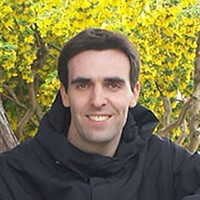Trump's defense chief heads to Asia eyeing N. Korea, THAAD deployment
Loading...
Defense secretary General James Mattis will land in Seoul on Thursday, kicking off a visit meant to re-affirm America's commitment to its closest Asian allies, South Korea and Japan.
In his first visit as defense secretary, Mattis seeks to calm fears inspired by campaign rhetoric suggesting that allies should shoulder more of their own defense burden. The trip comes amid transitions of power in both South Korea and America, as well as rising tensions with China concerning South Korea's planned deployment of American missile defense system THAAD and disputed control of islands in the South China Sea.
Japan and South Korea, which together host nearly 80,000 American troops, were unnerved by comments made by President Trump during the campaign that suggested he would rethink the arrangement of America's alliances in Asia. "It could be that Japan will have to defend itself against North Korea," he told a campaign rally in August. "We defend Japan. We defend Germany. We defend South Korea. We defend Saudi Arabia. We defend countries. They do not pay us what they should be paying us because we are providing a tremendous service and we're losing a fortune," Trump said in the first debate.
Recently, however, relations seem to be on the mend. As president-elect, one of his first meetings was with Japanese prime minister Shinzo Abe, and in a phone call Monday with acting Korean president Hwang Kyo-ah, Trump said the US will always be with South Korea "100 percent" and bilateral relations will be "better than ever," after which an American government source told the Chosun Ilbo, "[a] considerable amount of uncertainty over smooth communication with the US leader appears to have been resolved."
Now, in his first visit overseas, General Mattis seeks to send what one anonymous Trump administration official told Reuters was, "a reassurance message." Chuck Hagel, who served as defense secretary from 2013 to 2015, agrees that visiting these allies early "was a smart decision." He told the AP that officials in Tokyo and Seoul would be wondering: "Can we rely on the US? What is the future here?"
The visit comes at at a time of political upheaval, as the Trump administration opens in America while South Korea grapples with the recent impeachment of President Park Geun-hye.
Geopolitical tensions are rising as well. North Korea claims to be in the final stages of developing intercontinental ballistic missiles, and recently conducted its strongest nuclear tests to date. Observers disagree on whether the rogue nation has a nuclear device small enough to launch on a missile, but its first submarine launch last year raises concerns that North Korea is not far from possessing the technology to reach the continental United States, in addition to its current capacity to strike South Korea or Japan.
In response, America has agreed to move a battery of its Terminal High Altitude Area Defense (THAAD) system in South Korea to defend against its neighbor's growing missile capabilities.
"The THAAD deployment will contribute to a layered missile defense that will enhance the alliance's existing missile defense capabilities against North Korean missile threats," the US Department of Defense said in a press release.
But China and Russia, who fear the system's offensive and information-gathering capabilities, issued a joint statement condemning the move and promising countermeasures.
"Americans only talk about it in a tactical sense, it's a useful tool alongside a bunch of others to deter North Korea or stop a missile mid-flight," professor John Delury of Yonsei University told CNN. "The Chinese look at THAAD in strategic terms, and what they see is THAAD as part of a bigger picture of a missile defense network along its perimeter."
China has already retaliated with economic sanctions, which South Korea may counter with complaints to the World Trade Organization.
Japan has concerns of its own as well. Locked in dispute with China over a group of East China Sea islets 140 miles northeast of Taiwan known as the Senkakus in Tokyo and the Diaoyus in Beijing, post-WWII imposed constitutional restrictions force it to rely on America for its defense, although attitudes may be slowly shifting.
"What US military people say is that considering the pace of China's military build-up such as anti-ship missiles and fighters, there are worries about Japan's capabilities," a senior Japanese defense ministry official, speaking on condition of anonymity, told Reuters.
Trump will host Japanese Prime Minister Shinzo Abe in Washington on Feb. 10.
This report includes material from the Associated Press and Reuters.






